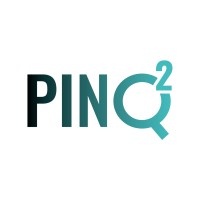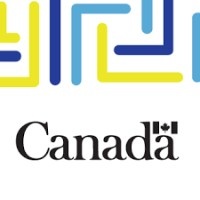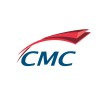
Closed
Universal Broadband Fund (UBF)
Last Update: October 27, 2025
Canada
Funding to bring broadband to remote areas
Grant and Funding
At a glance
Funding available
Financing goals
Integrate new technologies
Eligible Funding
- Up to 90% of project cost
Timeline
- Open Date : December 2, 2020
- Closing date : March 15, 2021
Eligible candidates
Eligible Industries
- Information and cultural industries
Location
- Canada
Legal structures
- Non-profit
- Public or Parapublic institution
- For-profit business
- Non-financial cooperative
Annual revenue
- All revenue ranges
Organisation size
- All organization sizes
Audience
- Indigenous Peoples
- Rural or Northern Residents
Non-profit candidates
Sector of operation
- Economic, Social and Community Development
- Employment and Training
Target groups
- General public
- Children & youth
- Seniors
- Indigenous peoples
- People with disabilities
- Women & girls
- LGBTQ+ community
- Rural / Remote communities
- Business owners / entrepreneurs
- Minority groups
Revenue structures
- All structures
Scope
- Local
- Municipal
- Regional
- Provincial
- National
Overview
Get funding to cover up to 90% of project costs for broadband infrastructure projects that will bring high-speed Internet at 50/10 Megabits per second to rural and remote communities by March 31, 2027.
Activities funded
- Deployment of broadband infrastructure to provide high-speed Internet (minimum 50/10 Mbps) to rural and remote areas lacking adequate service.
- Expansion or enhancement of household access to high-speed Internet in eligible underserved communities.
- Implementation of mobile connectivity projects that primarily benefit Indigenous peoples, including mobile coverage along unserved roads and highways strategic for Indigenous community development or public safety.
- Projects that deliver advanced mobile services (minimum 4G LTE) to Indigenous communities currently lacking service.
Examples of admissible projects:
$ 4,050,000
Building new broadband infrastructure to cover underserved areas
$ 2,700,000
Expanding rural broadband access for agricultural communities
$ 4,500,000
Deploying broadband infrastructure to serve Indigenous communities near Thunder Bay
$ 18,000,000
Enhancing Internet connectivity along highways from Nanaimo to remote villages
$ 6,300,000
Introducing high-speed Internet for remote areas near Whitehorse
$ 5,850,000
Deploying high-speed Internet infrastructure in remote Aboriginal communities near Saskatoon
Eligibility
- The applicant must be a corporation (for-profit or not-for-profit) incorporated in Canada, a Canadian provincial, territorial, or municipal entity, an Indigenous entity, a public sector body established by statute or wholly owned by a government, or a partnership, joint venture or consortium composed of these entities.
- The applicant must build, own, and operate broadband infrastructure or enter into a contractual arrangement with an eligible entity to design, build, own, and operate such infrastructure.
- The proposed project must extend or enhance high-speed Internet access to areas lacking 50/10 Mbps service, or provide mobile connectivity benefiting Indigenous peoples.
- The applicant must submit all required forms, templates, supporting documents, and meet program deadlines as specified by the fund.
Who is eligible?
- For-profit corporations incorporated in Canada
- Not-for-profit corporations incorporated in Canada
- Canadian provincial, territorial, or municipal entities
- Indigenous entities, such as organizations run by and for First Nations, Métis, or Inuit peoples, band councils, or Indigenous government authorities established by Self-Government or Comprehensive Land Claim Agreements
- Public sector bodies established by statute, regulation, or owned by a province, municipal, or regional government providing community services
- Partnerships, joint ventures, or consortia composed of any of the above eligible entities
Who is not eligible
- Federal entities, including Crown Corporations.
Eligible expenses
- Direct labour costs (gross wages or salaries for project-specific work).
- Direct material costs (materials used in project implementation).
- Direct equipment costs (equipment required for project completion, such as servers, switches, fibre optic cable, repeaters, radio equipment, towers, poles, backup power supplies, shelters, and network connectivity devices including upgrades).
- Direct satellite capacity costs (purchase or lease of satellite bandwidth or capacity used for the project).
- Direct travel costs required for project execution, provided they are necessary and documented, and charged at actual economy rates.
- Other direct costs that can be specifically identified and measured as incurred to implement the project.
Eligible geographic areas
- Areas in Canada identified by the Innovation, Science and Economic Development Canada (ISED) Availability Map as having Internet service below 50/10 Mbps.
- Geographic areas in rural and remote communities across Canada.
- Unserved Indigenous communities and unserved roads leading to or within Indigenous communities, as designated on ISED's Availability Map.
Selection criteria
- Managerial and financial capacity to deliver and sustain the project for at least five years after completion.
- Technical feasibility and sustainability of the proposed network or technology solution.
- Co-funding from additional partners (e.g., provincial, municipal, private sector), where applicable.
- Scalability and potential to increase speeds or coverage beyond the minimum requirements.
- Demonstrated social and economic benefits for the targeted community, including impacts on connectivity, economic development, and inclusion of underrepresented groups.
How to apply
1
Access the UBF Application Portal
- Create a secure login using GcKey ID and set up your Broadband Connection account.
- Gain access to the UBF Applicant Portal.
2
Prepare Required Documentation
- Download and complete the necessary templates, including the Eligibility and Impacts Calculator and Detailed Budget.
- Gather supporting documents, such as financial statements and project schedules.
3
Eligibility Mapping and Statistics
- Use the Eligibility Mapping Tool to define and validate your project coverage area.
- Upload the generated coverage map and associated statistics.
4
Fill Out the UBF Application Form
- Complete the Application Form with required project and contact information.
- Ensure that all mandatory fields are filled, and necessary attachments are prepared.
5
Upload Supporting Documents and Templates
- Upload completed templates and required supporting documents through the portal.
- Ensure documents are named correctly and follow the specified format.
6
Validate and Submit
- Use the Validate and Save function to check for errors in your application.
- Submit your complete application through the portal before the deadline.
7
Confirmation of Submission
Receive confirmation of your application submission and retain the reference number.
Additional information
- ISED offers dedicated pathfinder services, including webinars and direct support, to help applicants navigate the UBF application process and build partnerships.
- Applicants are required to follow confidentiality protocols and can mark sensitive information as "Proprietary" or "Confidential" in their submissions.
- Successful recipients must acknowledge the Government of Canada's contribution in all public communications related to the funded project.
- Projects may be subject to environmental impact assessments and Indigenous consultation requirements, depending on the project's scope and location.
Apply to this program
Frequently Asked Questions about the Universal Broadband Fund (UBF) Program
Here are answers to the most common questions about the Universal Broadband Fund (UBF). This section explains what the program is, how much funding is available, eligibility requirements, application deadlines, and other important details to help you determine if this grant is right for your business.
What is the Universal Broadband Fund (UBF)?
How much funding can be received?
What is the deadline to apply?
Who is eligible for the Universal Broadband Fund (UBF) program?
What expenses are eligible under Universal Broadband Fund (UBF)?
Where is the Universal Broadband Fund (UBF) available?
Is the Universal Broadband Fund (UBF) a grant, loan, or tax credit?
Apply to this program
More programs like this

Grant and FundingClosed
ISED — Artificial intelligence (AI)
Innovation, Science and Economic Development Canada (ISED)Supports testing innovative AI prototypes for Canadian government needs

Researchers And FacilitiesExpert AdviceOpen
Digital and Quantum Innovation Platform — PINQ²
Plateforme d'Innovation Numérique et QuantiqueGet expert advice and the use of a high-tech environment

Expert AdviceOpen
CRIM —Support
Computer Research Institute of Montreal (CRIM)Support for technological innovation projects

Wage Subsidies And InternsOpen
TECHNATION — Career Ready Program
TECHNATIONWage subsidy for developing tech talent

Grant and FundingClosed
Advancing Accessibility Standards Research
Accessibility Standards Canada (ASC)Supports research advancing federal accessibility standards in Canada

Partnering and CollaborationGrant and FundingClosed
CELTIC-NEXT – Next Generation Communications Autumn 2025 call for proposals
National Research Council Canada (NRC)Funding for collaborative ICT R&D projects for Canadian SMEs

Grant and FundingClosed
CMF — Innovation & Experimentation Program
Canada Media Fund (CMF)Canadian digital media innovation and experimentation funding program

Grant and FundingClosed
Enabling large-scale sovereign AI data centres
Innovation, Science and Economic Development Canada (ISED)Support proposals to build large-scale sovereign AI data centres

Researchers And FacilitiesPartnering and CollaborationGrant and FundingOpenClosing Soon
Fabrication Process Development Challenge
FABrICSupports development and commercialization of Canadian semiconductor fabrication processes

Grant and FundingClosed
Industrial Research Assistance Program (IRAP) – AI Assist
National Research Council Canada (NRC)Supports Canadian SMEs in adopting and integrating advanced AI solutions
Sign up to our platform to access the Universal Broadband Fund (UBF) information sheet for free
Get access to 4,000+ programs, practical guides, personalized alerts, and an AI assistant to support your grant applications.